The Department of Botany, Faculty of Science, Chulalongkorn University, provides services such as scientific name identification, specimen comparisons, and voucher specimens deposition. Plant specimens in our herbarium are an important foundation for both basic plant science research and plant science applications such as food and pharmaceutical industries, invasive plants ecology, and even as forensic evidence in criminal investigations.
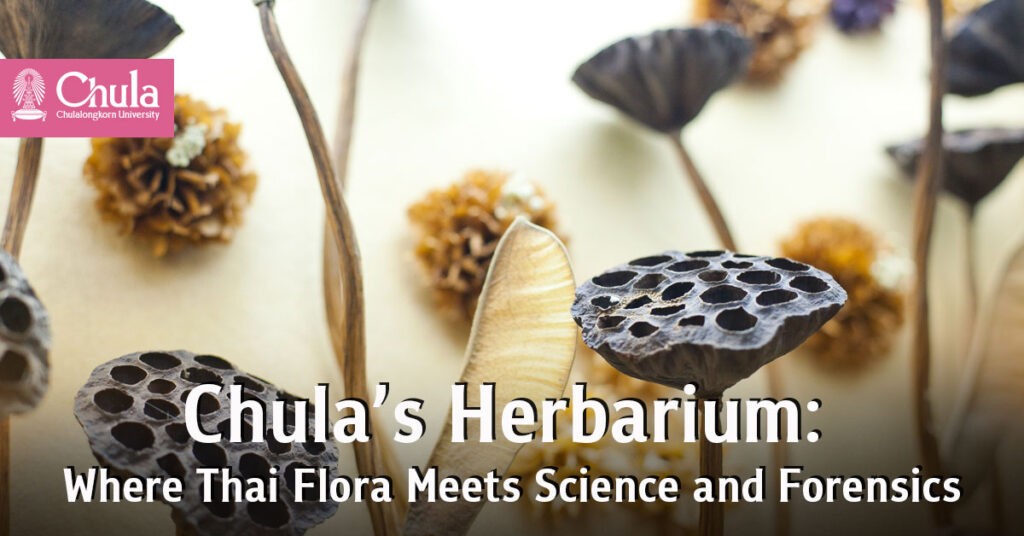
At the Professor Kasin Suvatabhandhu Herbarium, located on the 4th floor of the Botany Department, Faculty of Science, Chulalongkorn University, one can find more than 20,000 plant specimens from Thailand and other countries, as well as samples of fruits, seeds, and products from both economically valuable plants and ethnobotany. This herbarium is open to the public free of charge. It also provides analysis services to identify scientific name of plant specimens for research on plant diversity. Apart from serving as an occurrence record for a species, the specimen can be used for other purposes such as to detect active substances in plants for the benefit of the pharmaceutical industry and other related fields, or to serve as evidences in criminal investigations.
“On one occasion, the Royal Thai Police brought plant parts found on a suspect’s pants for us to examine to determine the kind of plant, whether it grows in a restricted area, and where it came from, as evidence for prosecution. The Customs Department has seized shallots at checkpoints and sent them to us to determine their kind and species, and whether they are of the same species and can be propagated.” Mrs. Parinyanoot Klinratana, Science Service Officer (Expert) at the Department of Botany, Faculty of Science, Chulalongkorn University, cited some examples of the kinds of services provided to various agencies and organizations.
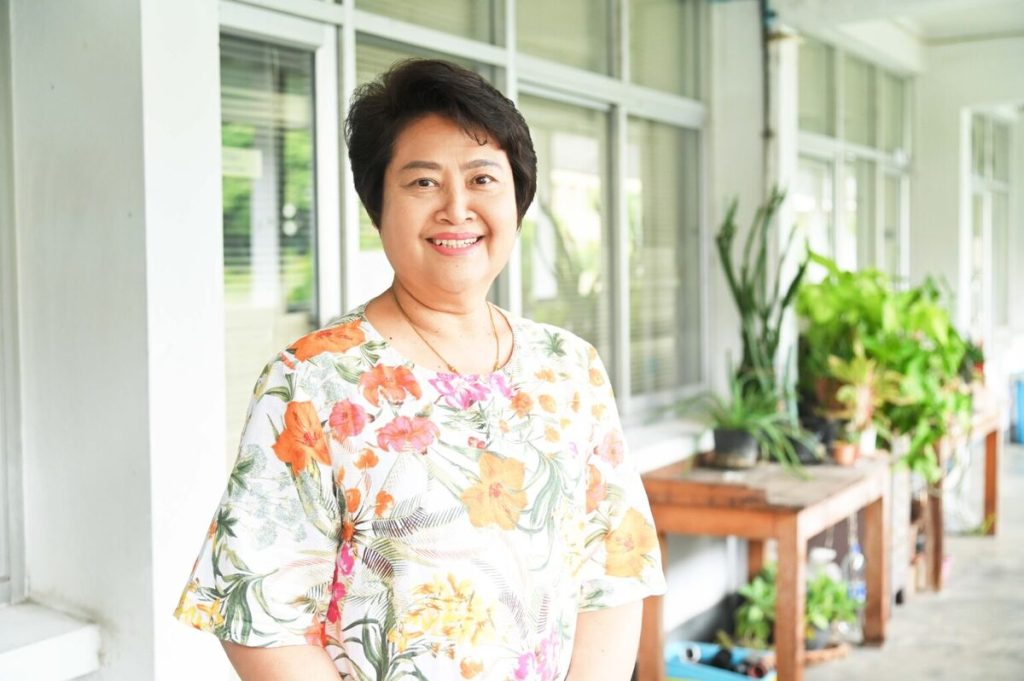
The Professor Kasin Suvatabhandu Herbarium (BCU) comes under the supervision of the Plants of Thailand Research Unit, Department of Botany, Faculty of Science, Chulalongkorn University. It was established in 1960 to collect plant samples as a database of plants in Thailand and to support teaching and research on plant diversity. At present, Mrs. Parinyanoot tells us that the herbarium has expanded its academic services to include a comprehensive analysis and identification of plant scientific names. The main missions are to analyze and test plant samples for:
- Identification of the scientific names of plants
- Preservation of plant specimens, both dried and pickled, including reference specimens (Voucher specimens)
- Writing descriptions of plant species
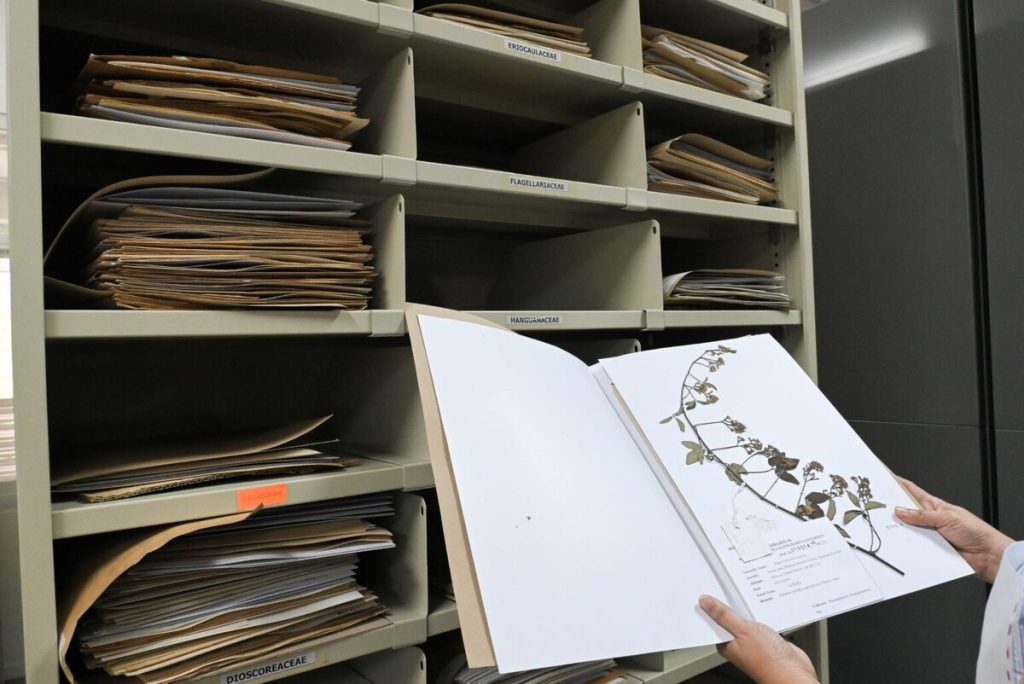
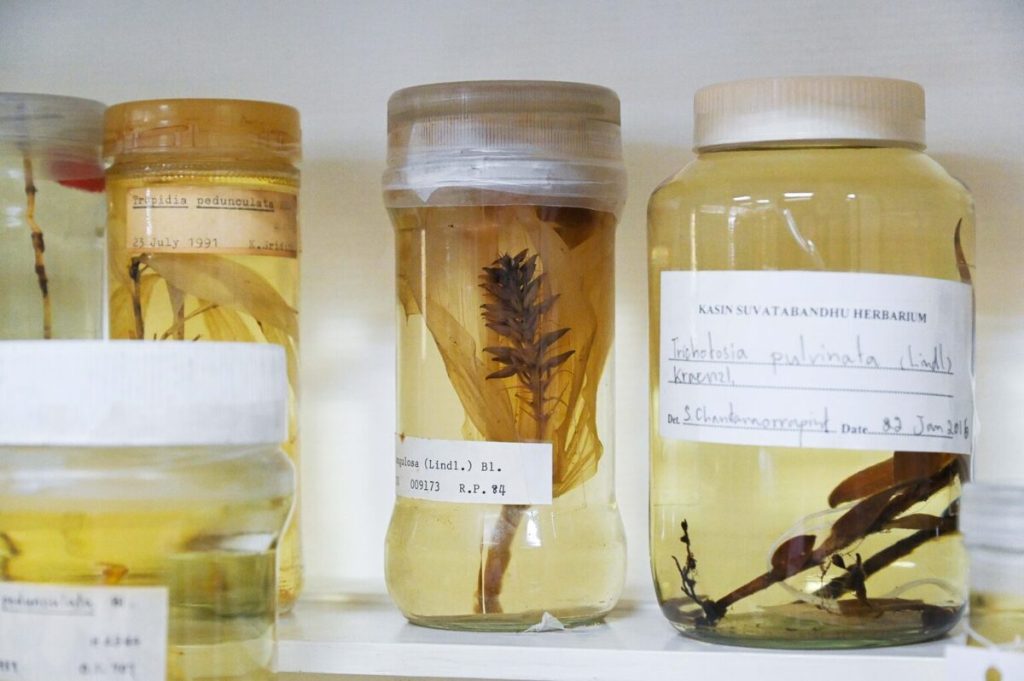
Professor Kasin Suvatabhandhu Herbarium Opening hours: Monday-Friday, 9:00 a.m.-12:00 p.m. and 1:00 p.m.-4:00 p.m. Closed on public holidays. No admission fee.
Those interested in using the service can contact https://www.botany.sc.chula.ac.th/?page_id=1638 or contact directly at the Plants of Thailand Research Unit and the Professor Kasin Suvatabhandhu Herbarium, Department of Botany, Faculty of Science, Chulalongkorn University, Tel. 02 218 5502 (Mrs. Parinyanoot)
Continue reading a full article on website: https://www.chula.ac.th/en/highlight/250138/
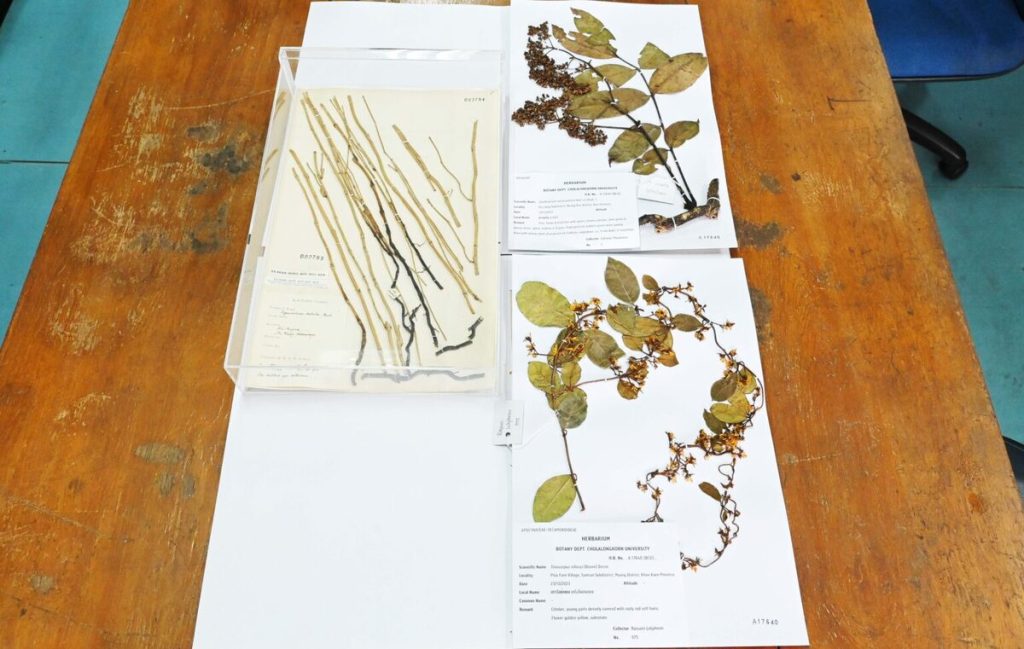
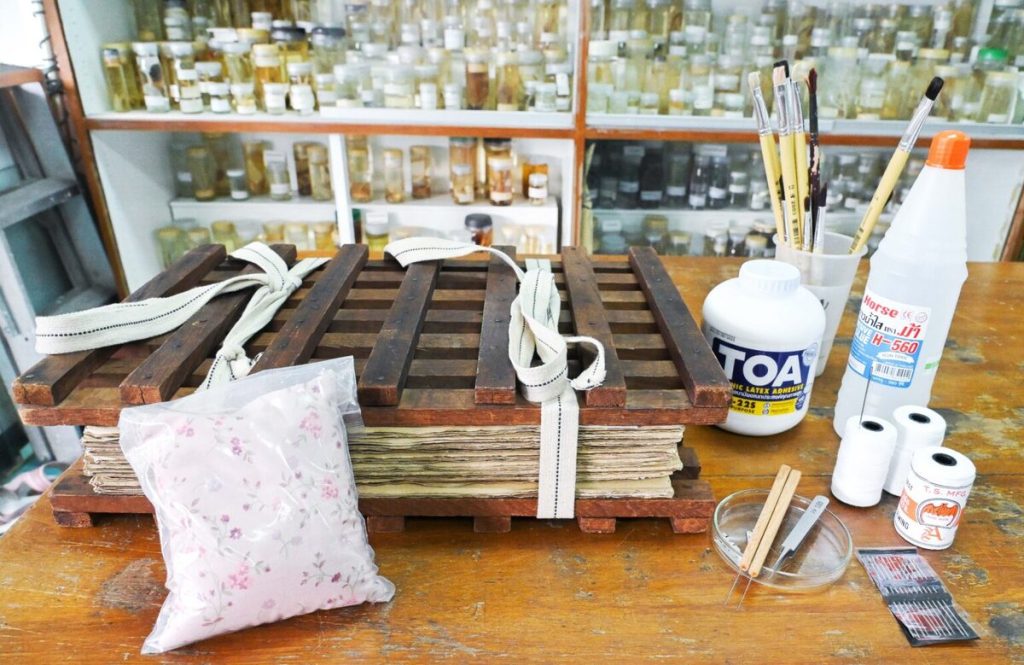
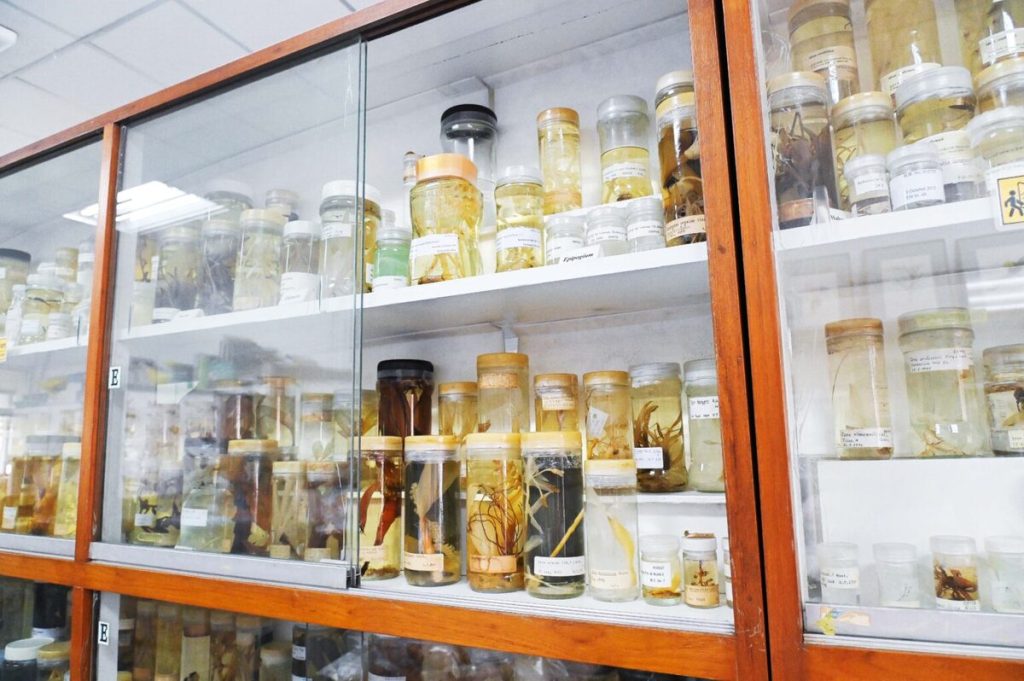
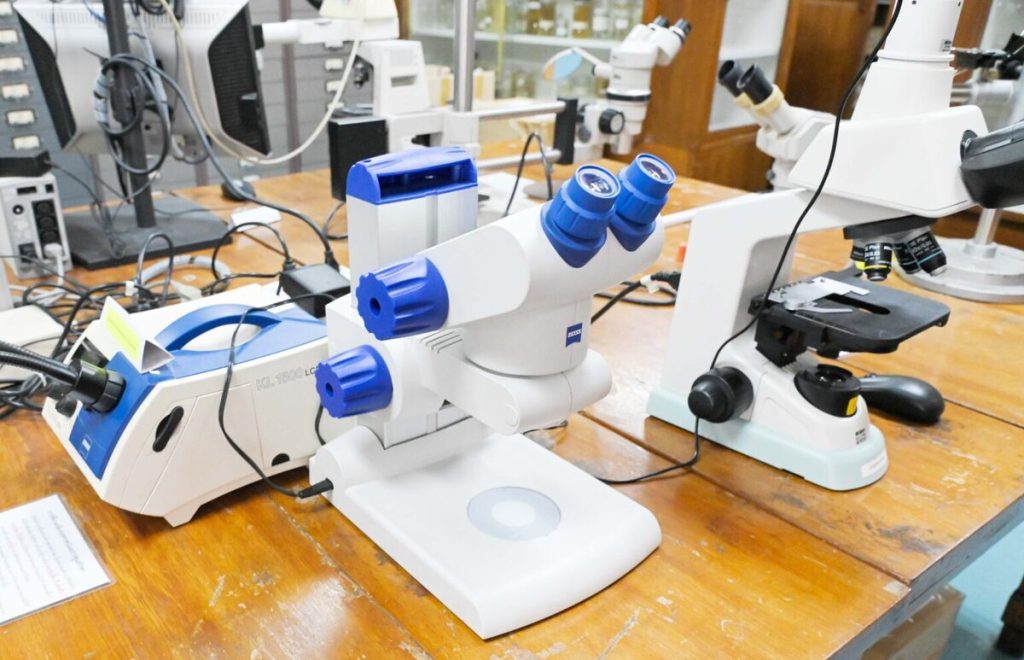
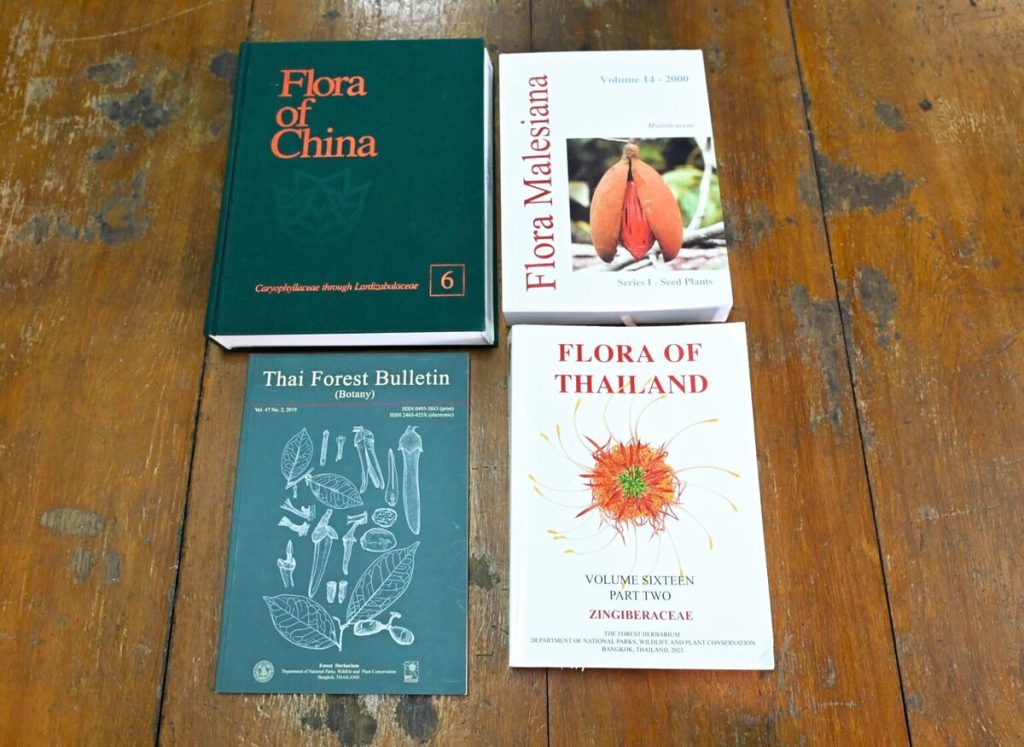
If you would like more information about this topic,
please contact Miss Pirada Tumweerapong at (+66) 2218 3055 or email [email protected]
“Chulalongkorn University sets the standard as a university of innovations for society and is listed in the World’s Top 100 Universities for Academic Reputation, in the Quacquarelli Symonds (QS) World University Rankings 2021-2022.”
